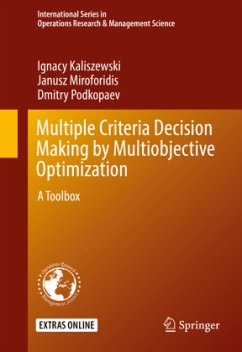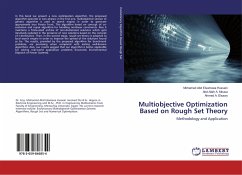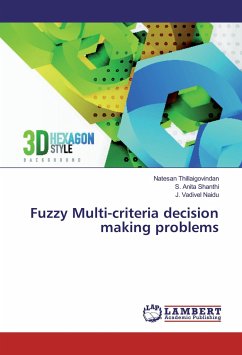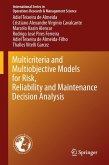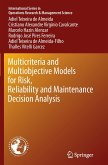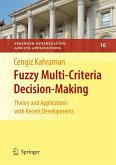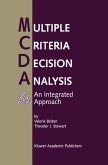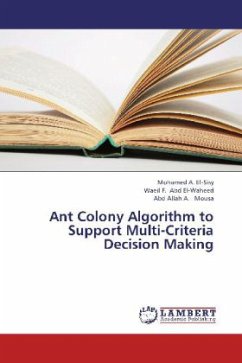Thistextbook approaches optimization from a multi-aspect, multi-criteria perspective.By using a Multiple Criteria Decision Making (MCDM) approach, it avoids thelimits and oversimplifications that can come with optimization models with onecriterion. The book is presented in a concise form, addressing how to solve decisionproblems in sequences of intelligence, modelling, choice and review phases,often iterated, to identify the most preferred decision variant. The approachtaken is human-centric, with the user taking the final decision is a sole andsovereign actor in the decision making process. To ensure generality, noassumption about the Decision Maker preferences or behavior is made. The presentationof these concepts is illustrated by numerous examples, figures, and problems tobe solved with the help of downloadable spreadsheets. This electroniccompanion contains models of problems to be solved built in Excel spreadsheetfiles.
Optimizationmodels are too often oversimplifications of decision problems met in practice.For instance, modeling company performance by an optimization model in whichthe criterion function is short-term profit to be maximized, does not fullyreflect the essence of business management. The company's managing staff isaccountable not only for operational decisions, but also for actions whichshall result in the company ability to generate a decent profit in the future.This calls for management decisions and actions which ensure short-termprofitability, but also maintaining long-term relations with clients,introducing innovative products, financing long-term investments, etc. Each ofthose additional, though indispensable actions and their effects can be modeledseparately, case by case, by an optimization model with a criterion functionadequately selected. However, in each case the same set of constraintsrepresents the range of company admissible actions. The aim and the scope ofthis textbook is to present methodologies and methods enabling modeling of suchactions jointly.
Optimizationmodels are too often oversimplifications of decision problems met in practice.For instance, modeling company performance by an optimization model in whichthe criterion function is short-term profit to be maximized, does not fullyreflect the essence of business management. The company's managing staff isaccountable not only for operational decisions, but also for actions whichshall result in the company ability to generate a decent profit in the future.This calls for management decisions and actions which ensure short-termprofitability, but also maintaining long-term relations with clients,introducing innovative products, financing long-term investments, etc. Each ofthose additional, though indispensable actions and their effects can be modeledseparately, case by case, by an optimization model with a criterion functionadequately selected. However, in each case the same set of constraintsrepresents the range of company admissible actions. The aim and the scope ofthis textbook is to present methodologies and methods enabling modeling of suchactions jointly.

